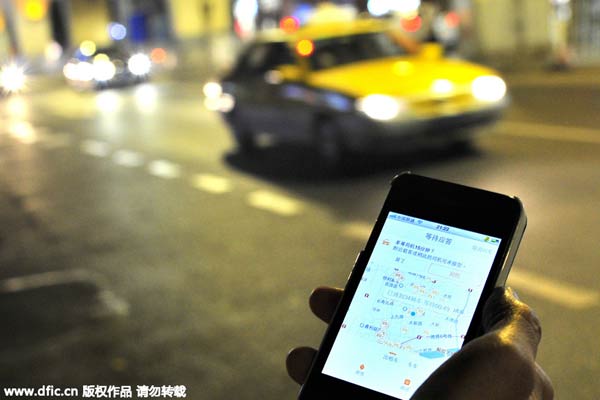
So-called “hitch” ride services that come with too much social interaction are straying from their original goal of providing transportation, and even pose a major safety hazard for the public, a Ministry of Transport official said.
Cai Tuanjie, vice-head of the transport services department of the ministry, called for regulation of such services through mechanisms that would include government, enterprises, passengers and drivers. Cai made the comments on China Central TV on Tuesday.
On May 5, a flight attendant was killed by her “hitch” service driver. The suspected killer committed suicide afterward by jumping off a bridge.
Pickups are arranged via mobile app, allowing a passenger to connect with a private car heading in the same direction. It is offered by Didi Chuxing, an online car-hailing service.
The platform’s social interaction functions have been criticized as a safety hazard.
Drivers and passengers can post comments about each other, such as whether a driver or passenger was good. However, comments have often featured vulgar descriptions of females.
Drivers can see a passenger’s information before accepting an order, and vice versa.
Unlike an ordinary car-hailing service, the hitch service – sometimes called a carpool or shared transport model – has drivers release routing information, and passengers desiring to travel the same route can connect. “Drivers and passengers share the cost, or drivers provide free assistance,” said Cai.
He said that legal carpooling services should meet two core conditions. One is the trip is designed to fulfill the driver’s needs; the other is sharing the cost.
Government departments should increase inspections of carpool services and urge enterprises to launch businesses in accordance with the law. It should also investigate and punish illegal operations, such as using the hitch service to operate a business, he said.
Cai urged municipal governments that have not issued detailed guidelines on regulating hitch services to do so soon.
Zhu Wei, deputy director of the Communication Law Research Center at China University of Political Science and Law, said the driver providing a hitch service is not a company employee.
“Carpool services are part of the shared economy. It is hard for government to strictly oversee it,” Zhu said, suggesting that any management should be modest.
He agreed, however, that social interaction functions should be limited.


